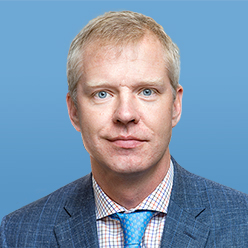The Russia Factor
The CSTO intervention in Kazakhstan is a major coup for President Vladimir Putin, who has touted the CSTO as a Eurasian counterpart to NATO, and sought to portray it as an organization that could help regional leaders withstand both domestic and outside threats to their power. But in the past few years, neither Moscow nor the CSTO were able to rescue leaders in Armenia or Kyrgyzstan that were targeted by public protests. The lightning-speed deployment will now be an example to leaders who may previously have been skeptical about Russia’s commitment to their security.
Beyond that, there has been a tendency to view the CSTO intervention in light of Russia’s threat against Ukraine. But the situations are not comparable. There is no question that the Russian intervention will have consequences for Kazakhstan’s foreign policy and for regional security, but it does not spell the end of Kazakhstan’s independence.
President Tokayev has reported that the CSTO operation is winding down and that the foreign forces are in the process of leaving the country. From Kazakhstan’s perspective, they have accomplished their chief objective: they have ended, for now, the acute phase of elite infighting in Kazakhstan, and shown with all due clarity that Moscow supports Tokayev against his detractors.
Given the past experience of Russian operations in the former Soviet Union, one could be forgiven for being skeptical that once invited, Russian forces would leave Kazakhstan. But there are at least three reasons to think that might actually happen. First, China has made it clear it wants to see no foreign forces in Kazakhstan, and Moscow is very sensitive to Beijing’s wishes. Second, Moscow has found itself in the unprecedented predicament of taking the side of a president that is identified with a reformist agenda. And if Tokayev wants to consolidate his power, he can do so only if he appears in charge and his reforms are implemented. If Tokayev is perceived as a Russian stooge, he could rapidly lose his standing in Kazakh society, resulting in further unrest and instability, something that is not in Russia’s interest. Finally, it should be recalled that Tokayev is the architect of Kazakhstan’s balanced “multi-vector” foreign policy, which seeks to build strong relations with all world powers, not just Russia.
It may thus be in both Tokayev’s and Putin’s interest for Russian forces to pull back, with Tokayev owing Putin a debt of gratitude. The alternative—installing a Putinist regime in Kazakhstan that quells public disenchantment with force—is simply not feasible, and not something Tokayev could or would do.
American and European Policies
Three major events in the past year or so have shown the decline in American, as well as European, influence in Central Asia and the Caucasus. The United States was essentially a bystander during the war between Armenia and Azerbaijan in late 2020. The chaotic American withdrawal from Afghanistan epitomized the American disengagement, and the United States did not feature in any notable way during the crisis in Kazakhstan. This slide is unfortunate, not least given the fact that every other power from Turkey in the west to Japan in the east appears to be intensifying its relations with this emerging world region. U.S. inaction in the region makes it that much harder for regional states to have a balanced foreign policy. Particularly following the withdrawal from Afghanistan, it is now high time for the United States to revamp its approach to Central Asia, starting with a reappraisal of relations with Kazakhstan.
If the United States is concerned about Russian influence, the solution is not to distance itself from Kazakhstan but rather to redouble engagement with the country and Tokayev. Tokayev continues to represent the best hope for a serious reform process that will make Kazakhstan both more stable and more responsive to the needs and views of its citizens. Simply because of the nature of Russia’s own political system, there is little Russia can or would do to support the reform process that Tokayev has launched. In fact, the only outside actors that could play a constructive role are the United States and Europe. Tokayev knows this and will want to re-engage with Western powers. But given his new predicament, this will be much easier if the initiative comes from Washington.
Kazakhstan must also be seen in its regional context. In the last few years, Central Asian states have engaged in an unprecedented effort to develop regional cooperation, to ensure they can manage regional problems on their own. The CSTO intervention is in this context a setback because it gives the illusion that only outside powers can provide security in the region. It is, therefore, in the U.S. interest to support efforts at regional cooperation that will, in the longer run, enable Central Asians to withstand both Russian and Chinese aspirations for hegemony.
Washington has an instrument for dialogue that is regional in nature. A first step should be to convene a meeting of the C5+1 mechanism including America and the five regional states to signal that America continues to care about developments in the region and is ready to step up efforts to support reform initiatives and regionalism in Central Asia. Building on that, the Biden administration could deploy an interagency process to fine-tune the Central Asia strategy that was adopted two years ago. While much remains to be done, these steps would kickstart a reboot of U.S. policy toward Central Asia.
Svante E. Cornell is Director of the American Foreign Policy Council’s Central Asia-Caucasus Institute, and a co-founder of the Institute for Security and Development Policy in Stockholm.
